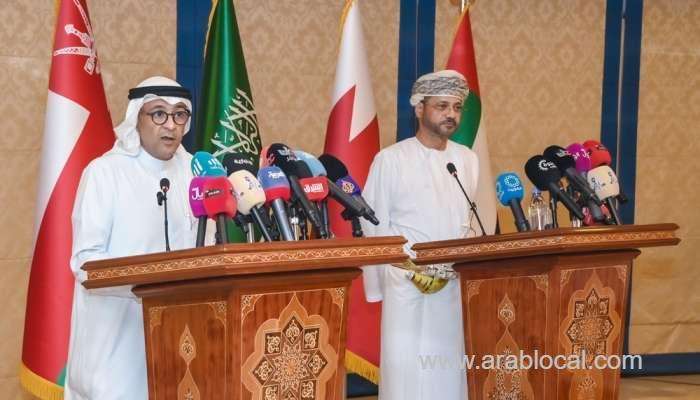
The GCC Ministerial Council has issued a series of demands and resolutions in response to the escalating conflict in the Palestinian territories, particularly the Gaza Strip. The Council held its 43rd extraordinary meeting in Muscat, Oman, with the participation of foreign ministers from GCC member states and the GCC Secretary General. During the meeting, they expressed gratitude to Sultan Haitham bin Tarik for his insightful guidance and vision for regional stability and prosperity.
The Council addressed the dire situation in the Palestinian territories, condemning the violence and illegal bombing of Gaza, which resulted in the loss of numerous innocent lives and injuries. They also discussed Israel's intentions to invade Gaza and displace civilians, recognizing the severe challenges these events pose to the region. The Council's key resolutions and demands are as follows:
-
Immediate Ceasefire and Humanitarian Aid: The Council urgently called for an immediate ceasefire and an end to Israeli military operations in Gaza, as well as the lifting of the illegal blockade. They stressed the importance of ensuring access to humanitarian aid, relief supplies, and essential resources such as electricity, water, fuel, food, and medicine for the people of Gaza.
-
Support for Palestinian Resilience: The Council expressed support for the resilience of the Palestinian people in their homeland and vehemently opposed any attempts to displace or transfer them.
-
Protection of Civilians and International Law: The Council called on all parties to the conflict to protect civilians and adhere to international law and humanitarian principles. They emphasized the release of innocent hostages and detainees, especially vulnerable individuals like women, children, the sick, and the elderly, while advocating for international protection for the Palestinian people.
-
Humanitarian Aid Operation: The Council pledged immediate financial contributions of $100 million for a relief operation to meet the urgent needs of the Palestinian population in Gaza. They emphasized the swift delivery of this aid to Gaza.
-
Peace Initiative Support: The Council reiterated its support for the peace initiative led by Saudi Arabia, the European Union, and the League of Arab States, in cooperation with Egypt and Jordan.
-
Ending Illegal Occupation and Self-Determination: The Council reiterated its position on ending Israel's illegal occupation of Palestinian Territories and recognized the Palestinian people's right to self-determination. They supported the establishment of an independent Palestinian state based on the 1967 borders, with East Jerusalem as its capital, in accordance with international law and relevant UN resolutions. The Council also emphasized the international community's responsibility to address the Palestinian issue consistently.
-
International Measures Against Israeli Actions: The Council urged the international community to take necessary measures within the boundaries of international law to respond to Israel's illegal actions, including its policy of collective punishment in Gaza and other Palestinian Territories.
The Council concluded its meeting by calling upon the United Nations Security Council to implement previous resolutions concerning the Arab-Israeli conflict and to adopt new resolutions to ensure Israel's compliance with international law. They firmly rejected any Israeli plans to invade Gaza or other Palestinian Territories and displace Palestinian populations.
During a press conference, Oman's Foreign Minister, Sayyid Badr Hamad Al Busaidi, emphasized the imperative need to halt violence and Israeli military operations without compromise. He also stressed the immediate implementation of the GCC Ministerial Council's resolutions and an end to Israeli actions while engaging in dialogue with international and regional stakeholders. Sayyid Badr highlighted that GCC states are pursuing wise and rational approaches, prioritizing political and diplomatic efforts, the cessation of military action, and the delivery of essential aid to the Palestinian people.